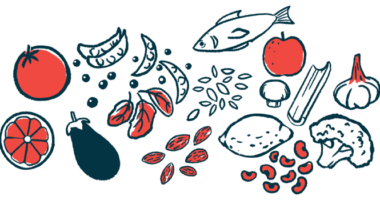Drinking coffee and tea may protect against MS, study says
But carbonated beverages, milk, and natural fruit juices are linked to MS risk

People who drink black and green tea, coffee, and nonalcoholic beer may be significantly less likely to develop multiple sclerosis (MS), a study in Iran has found.
In contrast, consuming carbonated beverages, milk, and natural fruit juices seems to increase the chances of developing the neurodegenerative condition, according to researchers.
“The results of this study can be used to design interventional research and to change people’s lifestyles to prevent MS,” they wrote.
The study, “A case–control study of drinking beverages and the risk of multiple sclerosis in Iran,” was published in the Journal of Health, Population and Nutrition.
Previous research on beverage consumption and MS report conflicting results
MS occurs when the immune system mistakenly attacks the myelin sheath, the protective coating around nerve fibers that helps them send electric signals more efficiently. The loss of myelin leads to the progressive degeneration of nerve fibers, resulting in a range of MS symptoms.
Several risk factors are known to contribute to MS, including genetics, history of infections, and demographic factors such as sex and race. Lifestyle habits, such as smoking and consuming a high-fat diet, are also believed to play a role in MS onset.
On the other hand, drinking alcohol and coffee seems to protect against the disease, although studies have reported conflicting results. Green tea has also shown some benefits in gait and balance in people with MS, but the impact of drinking green and black tea on MS development has never been studied.
To determine the relationship between different beverages and MS, researchers conducted a case-control study involving 146 MS patients followed at an Iranian hospital and 277 age-matched controls. Control participants were selected from the ophthalmology ward of the hospital.
The mean age of the patients was 38.5 years at the time of diagnosis, and the control participants were 37.2 years old on average. The majority of MS patients had an academic education (54.8%), compared with 34.7% of controls.
The results of this study can be used to design interventional research and to change people’s lifestyles to prevent MS.
To evaluate beverage consumption, participants completed a questionnaire with a checklist for the consumption of milk, coffee, black and green tea, natural or packaged juices, soft drinks, and nonalcoholic beer. For all beverages, except tea, the categories of consumption were “with” or “without.”
Due to the high intake of tea in Iran, consumption for black tea was classified as less than 500 g/day versus 500 g/day or higher. For green tea, the categories were less than or greater than 16 g/day.
After adjusting for potentially confounding factors, statistical analysis showed that being a woman or having a college education significantly increased the likelihood of developing MS.
Also, all drinks except for packaged juices had a significant association with MS.
Consuming soft drinks had the greatest association, increasing the likelihood of developing the condition by 16.2 times. Other drinks such as milk and natural fruit juices also increased that likelihood significantly, by 5.5, and 2.5 times, respectively.
Greatest protective effects were observed for coffee consumption
The remaining beverages all seemed to protect people from MS. Black tea, or more specifically drinking 500 g or more of it per day, reduced the likelihood of developing MS by 80%. Drinking at least 16 g a day of green tea also lowered the risk by 71%.
People who reported drinking non-alcoholic beer were 52% less likely to develop MS, but the greatest effects were observed for coffee, which lowered that likelihood by 93%.
Based on the results, participants who reported no coffee consumption were 14.5 times more likely to develop MS than those who drank coffee.
Coffee, as well as green and black tea, all contain caffeine, a stimulant of the central nervous system shown to have neuroprotective effects. Although the underlying mechanisms are not fully understood, “a beneficial effect can be observed in various organisms and conditions of chronic and autoimmune diseases,” the researchers wrote.
These beverages also contain high levels of polyphenols, which have anti-inflammatory and antioxidant properties that may reduce the activation of the immune system and protect the nervous system, the team noted.
One of the limitations of this study is that it relied on participants recalling their drinking habits, which might have affected the results. Future studies that control for these factors were suggested by the researchers.








